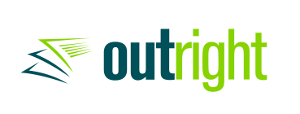Outright
Outright refers to a complete or total action, ownership, or position in various contexts, including finance, sports, and general usage. The term is often used to describe a situation where something is owned completely without any debt or encumbrance, or an action that is done without reservation or hesitation.
Finance[edit | edit source]
In the finance sector, "outright" is a term used to describe a transaction where a financial instrument is bought or sold and the ownership is transferred completely. This contrasts with transactions that might involve derivatives or conditional agreements. An outright transaction in the foreign exchange market, for example, involves the full exchange of currencies at a specified rate without the complexities of futures contracts or options.
Outright Forward[edit | edit source]
An Outright Forward is a non-standardized contract in the foreign exchange market where two parties agree to exchange currencies at a future date and at a predetermined rate. Unlike futures contracts, outright forwards are not traded on exchanges and can be tailored to the needs of the contracting parties, including the amount and the settlement date.
Sports[edit | edit source]
In sports, "outright" often refers to winning a championship or title without the need for playoffs or final rounds. For example, a team that wins the league by having the best record over the season may be said to win the title "outright." This usage emphasizes the lack of ambiguity in the victory or achievement.
General Usage[edit | edit source]
In general terms, "outright" can describe any action or state that is complete and unqualified. For example, an "outright lie" is one that contains no element of truth, and "outright ownership" refers to possessing something without any shared interest or claim by others.
Legal Context[edit | edit source]
In a legal context, outright ownership is a term used to describe a situation where an individual or entity has full legal rights and control over a property or asset, without any restrictions or mortgages attached to it. This is in contrast to shared or partial ownership, where the rights and responsibilities are divided among multiple parties.
Conclusion[edit | edit source]
The term "outright" is versatile, finding relevance in various fields by emphasizing completeness, totality, and unconditionality. Whether in finance, sports, or everyday language, it conveys a sense of fullness and absence of limitation or qualification.
- Need help finding a doctor or specialist anywhere in the world? WikiMD's DocFinder can help with millions of doctors!
| This article is a stub. Help WikiMD grow by registering to expand it. |
Navigation: Wellness - Encyclopedia - Health topics - Disease Index - Drugs - World Directory - Gray's Anatomy - Keto diet - Recipes
Search WikiMD
Ad.Tired of being Overweight? Try W8MD's physician weight loss program.
Semaglutide (Ozempic / Wegovy and Tirzepatide (Mounjaro) available.
Advertise on WikiMD
WikiMD is not a substitute for professional medical advice. See full disclaimer.
Credits:Most images are courtesy of Wikimedia commons, and templates Wikipedia, licensed under CC BY SA or similar.
Contributors: Prab R. Tumpati, MD


